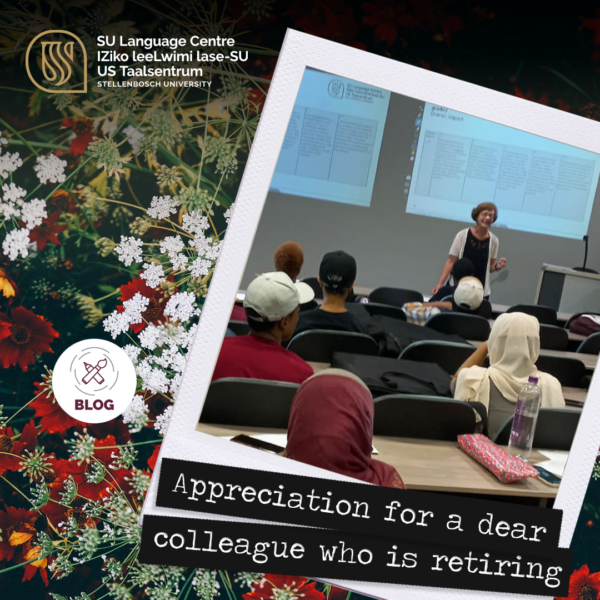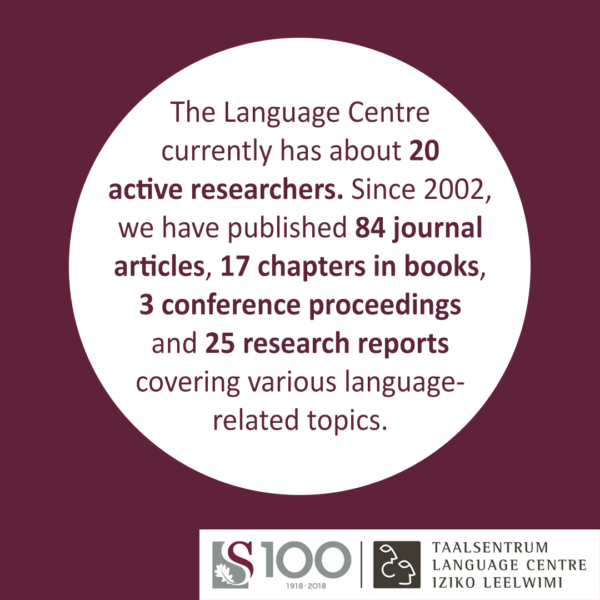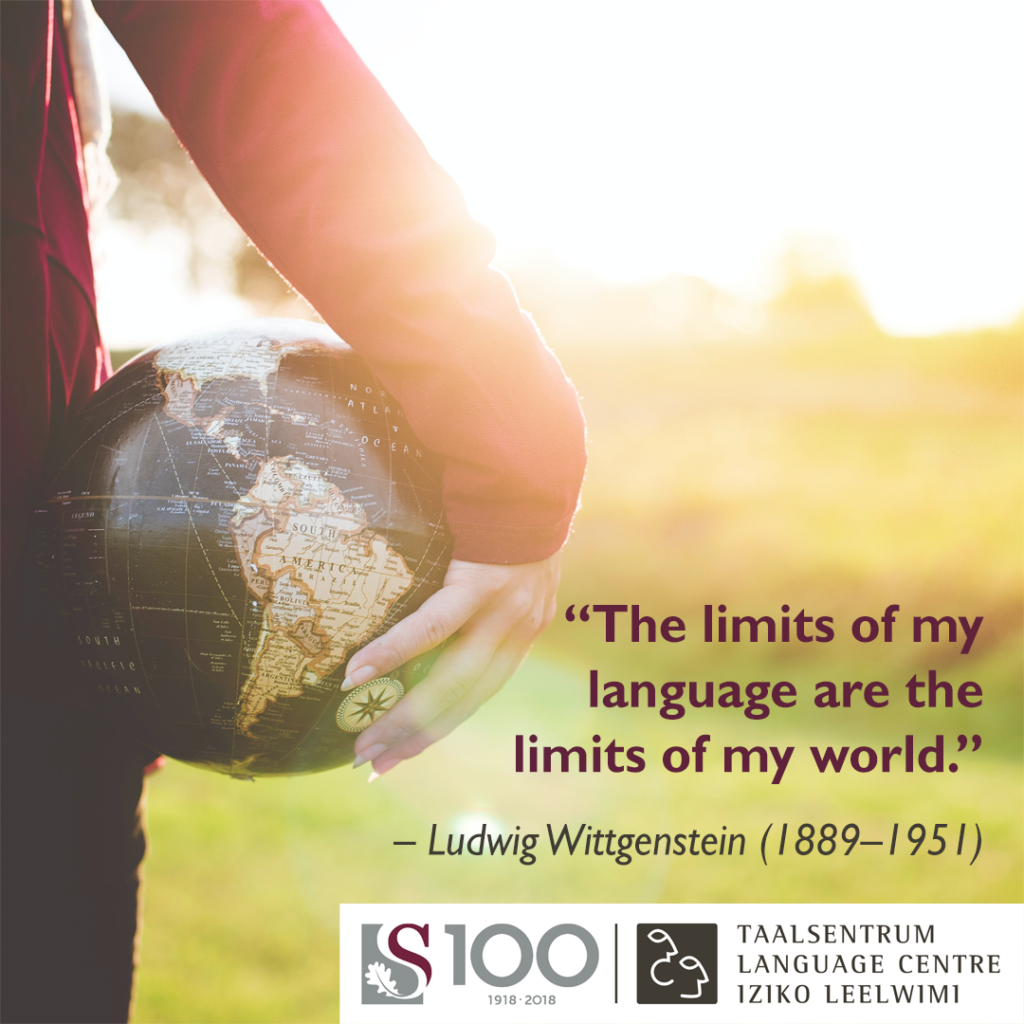Appreciation for a dear colleague who is retiring

Ydalene Coetsee, a stalwart academic and professional literacies lecturer at the Language Centre, is retiring at the end of 2023 after 14 years of teaching.
Academic literacies modules are presented to support students to bridge the gap between school and university, and these credit-bearing modules are tailor-made in response to the unique needs of each SU faculty. Ydalene was particularly involved in teaching students in the extended curriculum programme for sciences, and focused on engineering students. She gave priceless support to students who were finding their feet in a new and demanding academic environment.
We will miss you dearly, Ydalene! A colleague shared the following little ode to Ydalene at her farewell:
Ode aan Ydalene
Jy is vir my sag, vol geloof, vrede en humor,
Jy sien altyd die blinkkant as die lewe knor.
Mag jou toekoms skitter en blink,
En mag daar vrede, geluk en baie seelug vir jou wink.
(Ode to Ydalene
To me you are gentle, and filled with faith, peace and humour,
You always see something positive when life is hard.
May your future sparkle and glow,
And may peace, happiness and fresh sea air be with you always.)
We also had a chat with Ydalene to find out what she’ll remember about us and what she’ll do without us 😉. Read on for the interview.
What did you study and why did you start working at the Language Centre?
After finishing a master’s in translation studies, I thought I would be happy working from home, translating books for Struik Publishing House. However, I missed teaching so much that I started contract teaching for the Language Centre and later applied for a permanent position. That was in 2010, and I have loved teaching here since then. I originally facilitated lectures in different faculties (Law, Science, EMS) but later only for Engineering and Theology. The Theology classes were small and there were two kinds: residential and part-time or working students. I am so glad I was never too old to upskill and learn new things.
What changes did you experience at the Language Centre, and did you instigate some change yourself?
In my subject field (academic literacies) the biggest change was from presenting stand-alone modules to collaborating closely with colleagues from faculties to present modules. I would also like to think that I helped create a more supportive environment in the Language Centre.
Could you tell us more about the students and colleagues you’ve been working with? What did you enjoy most?
I preferred supporting students in the extended curriculum programmes because I felt I could make a real difference there. Feedback that sets my heart aglow is when a student or colleague tells me that I have made a difference in their lives. I have learnt a lot from both colleagues and students.
If you could teach first years only one thing, what would it be?
My passion is clear communication and I am still actively working on it. Students writing in their second or third language need different interventions and lots of patience. I do know how difficult it is to learn a new language and I love supporting students on their journey to become multilingual.
Would you like to share an ‘aha’ moment in class or a funny story?
What I remember best is the mistakes I have made, for instance coming to the realisation that my values were not adequately visible to students. So, I now try harder to show my respect for all people.
The funniest times were the excuses for not attending class or submitting assignments. My favourite for missing a test:
M’am, I had to go to Worcester yesterday because I had to fetch a mongoose from a service provider there. See, my girlfriend had a snake in her flat and this was the only way we could get rid of it.”
Most of the language jokes I tried telling all these years were only understood by one or two students (the first-language speakers) in the class. Then I had to explain the joke, and the further I got with the explanation the sillier I felt. I also had some embarrassing moments with technology not working as required. Then I was always very grateful that students would help me.
Tell us about the things you’re looking forward to – what will you do once you’ve retired?
Perhaps I will continue doing what I love doing (helping students to communicate clearly) in other environments. I would also like to walk in the mountains more and visit with friends more frequently and longer without feeling guilty. My grandchildren can expect lots of cuddles and my youngest son and I plan to walk the Machu Picchu Inca trail in 2024. My husband of 42 years and I love taking road trips and there are still places we have not experienced, so we have places to go and people to see!
I wish the Language Centre and my colleagues all the best for the future. Remember: Life is language.”
Also read what Ydalene says about her favourite books here.

